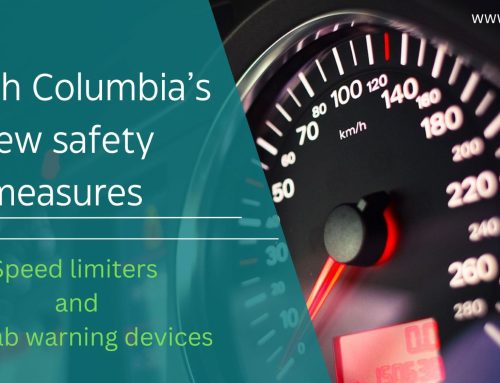
The FMCSA issues a notice of regulatory guidance; request for public comment.
The Federal Motor Carrier Safety Administration (FMCSA) today has called on the public to comment on its latest revision its guidance questions as they pertain to the Hours of Service rules and the Oilfield hours of service exemptions.
Commercial motor vehicles that are used to transport supplies, equipment and materials such as sand and water to and from the well sites do not qualify for the oilfield hours of service exemption even if there have been some modifications to the vehicle and additional driver training. As oilfield operations increase, so has the number of commercial motor vehicles and drivers used to support, supply and transport equipment used in the industry. The operators of many of these vehicles have raised questions about the applicability of § 395.1(d) to them.
The FMCSA states that the regulatory guidance is being revised to ensure consistent understanding and application of the regulatory exceptions.
FMCSA Regulations in Question about Oilfield hours of service exemptions
Section 395.1(d) provides two separate exceptions to the HOS rules, with the two exceptions applying to different operators. Section 395.1(d)(1) states that for drivers of CMVs used exclusively in the transportation of oilfield equipment, including the stringing and picking up of pipe used in pipelines, and servicing of the field operations of the natural gas and oil industry, any period of 8 consecutive days may end with the beginning of any off-duty period of 24 or more successive hours. This is commonly referred to as a “24-hour restart” of the 70 hours in 8 days total on-duty time limit in § 395.3(b).
Section 395.1(d)(2) states, in part, that in the case of specially trained drivers of CMVs that are specially constructed to service oil wells, “on-duty time shall not include waiting time at a natural gas or oil well site.” Under the definition of “On duty time” in § 395.2, drivers who are standing by at an oil well site until their services are needed would normally be considered on-duty, thereby constraining the hours that they would have available to legally drive a CMV within the HOS-rule limits. This exception is often referred to as the “oilfield waiting time” provision.
FMCSA revised Regulatory Guidance Questions on Oilfield hours of service exemptions
“Question 6: What does “servicing” of the field operations of the natural gas and oil industry cover?
Guidance: The “24-hour restart” provision of § 395.1(d)(1) is available to drivers of the broad range of commercial motor vehicles (CMVs) that are being used for direct support of the operation of oil and gas well sites, to include transporting equipment and supplies (including water) to the site and waste or product away from the site, and moving equipment to, from, or between oil and gas well sites. These CMVs do not have to be specially designed for well site use, nor do the drivers require any special training other than in operating the CMV.
Question 8: What kinds of oilfield equipment may drivers operate while taking advantage of the special “waiting time” rule in §395.1(d)(2)?
Guidance: The “waiting time” provision in § 395.1(d)(2) is available only to operators of those commercial motor vehicles (CMVs) that are (1) specially constructed for use at oil and gas well sites, and (2) for which the operators require extensive training in the operation of the complex equipment, in addition to driving the vehicle. In many instances, the operators spend little time driving these CMVs because “leased drivers” from driveaway services are brought in to move the heavy equipment from one site to another. These operators typically may have long waiting periods at well sites, with few or no functions to perform until their services are needed at an unpredictable point in the drilling process. Because they are not free to leave the site and may be responsible for the equipment, they would normally be considered “on duty” under the definition of that term in § 395.2. Recognizing that these operators, their employers, and the well-site managers do not have the ability to readily schedule or control these driver’s periods of inactivity, § 395.1(d)(2) provides that the “waiting time” shall not be considered on-duty (i.e., it is off-duty time). During this “waiting time,” the operators may not perform any work-related activity. To do so would place them on duty.
Examples of equipment that may qualify the operator/driver for the “waiting time exception” in § 395.1(d)(2) are vehicles commonly known in oilfield operations as heavy-coil vehicles, missile trailers, nitrogen pumps, wire-line trucks, sand storage trailers, cement pumps, “frac” pumps, blenders, hydration pumps, and separators. This list should only be considered examples and not all-inclusive. Individual equipment must be evaluated against the criteria stated above: (1) specially constructed for use at oil and gas well sites, and (2) for which the operators require extensive training in the operation of the complex equipment, in addition to driving the vehicle infrequently.
Operators of CMVs that are used to transport supplies, equipment, and materials such as sand and water to and from the well sites do not qualify for the “waiting time exception” even if there have been some modifications to the vehicle to transport, load, or unload the materials, and the driver required some minimal additional training in the operation of the vehicle, such as running pumps or controlling the unloading and loading processes. It is recognized that these operators may encounter delays caused by logistical or operational situations, just as other motor carriers experience delays at shipping and receiving facilities. Other methods may be used to mitigate these types of delays, which are not the same types of waiting periods experienced by the CMV operators who do qualify for the waiting time exception.”
Anyone interested in commenting is asked to go to www.regulations.gov; the docket number is FMCSA-2012-0183.
For more information please visit





